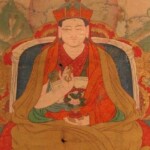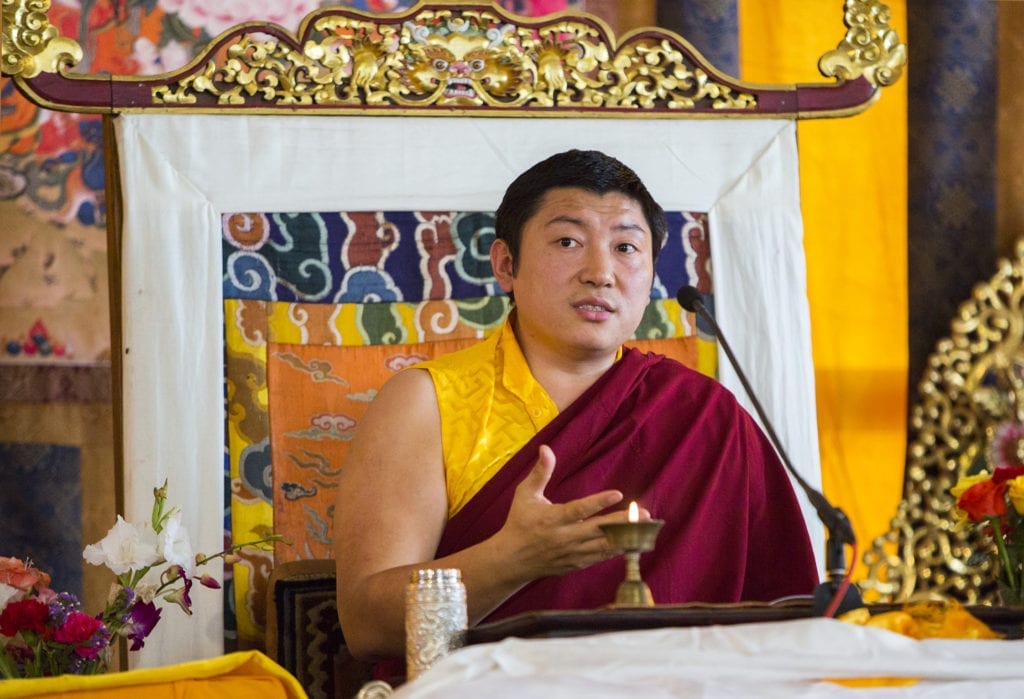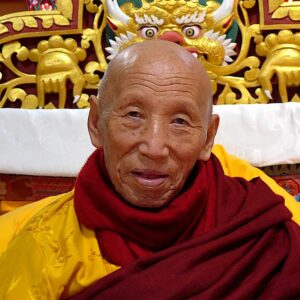Just be kind! Phakchok Rinpoche observes that as he travels around the world, he finds that many of us have forgotten this basic skill. Basic, simple kindness seems to be disappearing. This simple kindness doesn’t belong to any religion or belief set. We can remind ourselves, again and again, to just be kind to each other. Rinpoche advises us to adopt this important motivational slogan as a regular mantra.
We need to remember to be kind to each other. And kindness should flow naturally without an agenda. Then we can spread our kindness around. Rinpoche says, “Just be kind to the teacher. Just be kind to your dharma brothers and sisters.” And when we act kindly, we don’t lose anything, do we? What does it cost us to be kind?
Just Be Kind and Reap the Benefits
Instead, we can consider what we gain from kindness. How do we benefit? Rinpoche says that we actually gain a tremendous amount and can heal so fast. Furthermore, being kind is the fastest way to purify our obscurations. Kindness is the best way for us to develop the awakened heart of bodhicitta. We have the motivation to work for enlightenment but we don’t become obsessed with enlightenment. We can understand this by thinking about how we behave when we lack kindness. And here, Rinpoche uses the analogy of swimming against a current to achieve a goal. When we don’t develop kindness, we find ourselves struggling and disappointed.

The great Terton, Chokgyur Lingpa, taught us that we need to be motivated to achieve enlightenment. Motivation is something very important. However, we must also realize that enlightenment means having great kindness. And we need to apply that great kindness without agenda to all sentient beings. Just be kind — that is enlightenment! And as Buddhist practitioners, we need to check ourselves. We may think we are following instructions, but if we forget to just be kind and instead become proud then something has gone wrong.
Just Be Kind and Become Sincere
Real kindness doesn’t come with a certain number of years of practice and it doesn’t come automatically with age. Kindness is not something we can quantify. But what does count is the extent to which we have become pure. And we should be honest and non-judgmental about our own faults. When we see our faults, then we are on the way to becoming sincere. So we observe our faults and become honest about acknowledging them.
First, we come to know them. Then we see them, but then it is important to let go. The next step is to then refocus on kindness. We say to ourselves, “Just be kind!” But Rinpoche warns us not to keep dwelling on or looking too hard at our faults, or we run the risk of self-victimization. We might then tend to identify with our faults rather than applying the antidote of kindness.
Just Be Kind — Reflection Exercise
We can become more kind by exercising our kindness muscles and engaging in retraining. We all know what kindness feels like, both as recipients and as kind people. Spend at least a few weeks observing your own behavior. A journal can help you to track your kind acts of body, speech, and mind.
Notice the opportunities you have to be kind, and see how directing your motivation and intention helps you to follow through on those instincts. How does mindfully incorporating kindness change your interactions with others? And see if you can see how it changes your mental state. What does it feel like to be more kind?











Responses
[…] Just be Kind! and Real […]